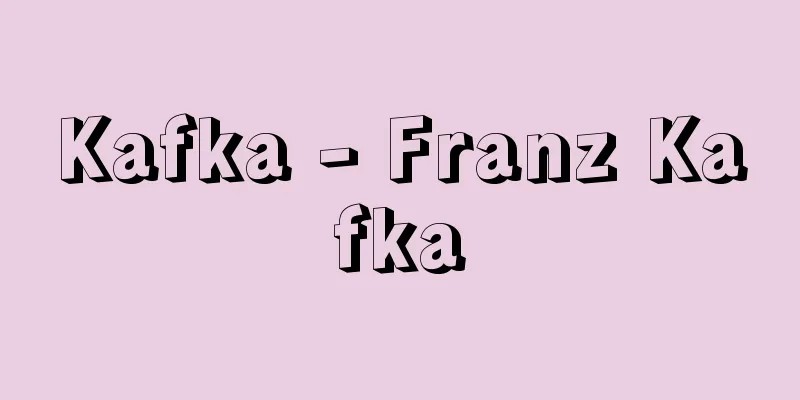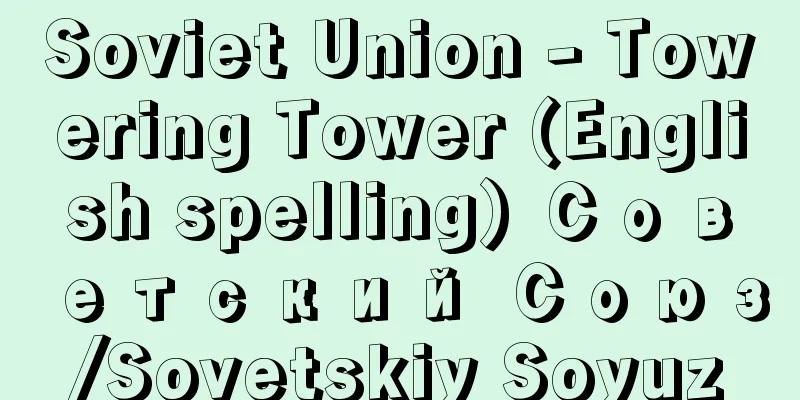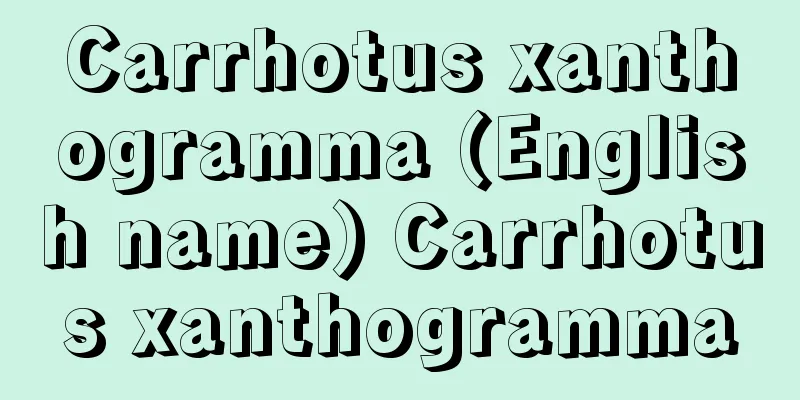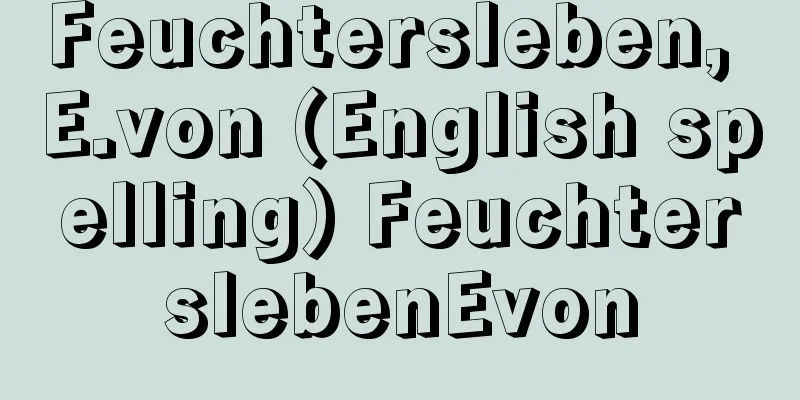Kafka - Franz Kafka

|
German-language writer born in Prague. He was born on July 3, 1883, in Prague, the capital of Bohemia (now a part of the Czech Republic) under the rule of the Austro-Hungarian Empire before World War I, as the son of a German-Jewish merchant. The tense relationship between his strong, thrifty father and his frail, sensitive son left a strong mark on his works such as Letters to My Father. He studied law at the University of Prague, and worked at the Prague Work Accident Insurance Bureau from 1908. He was engaged twice to Felice Bauer, but was unable to marry her, and the engagement was finally broken off in 1917. His love affair with Milena Jesenska Polak (1920-1922) was largely emotional, but this also ended. He suffered from tuberculosis from 1917, and in 1922 he gave up the job he hated, and the following year he moved to Berlin, where he tried to become independent as a writer and lived with Dora Diamant. However, his illness worsened, so he returned to Prague and then moved to Vienna to recuperate, where he died on June 3, 1924, in a sanatorium in Kierling, a suburb of Vienna. His short stories include the collections Observations (1913), The Stoker (1913), The Verdict (1913), The Metamorphosis (1915), In the Penal Colony (1919), and the collections The Country Doctor (1919) and The Hunger Artist (1924). His posthumous works, aphorisms, diaries, and letters, especially his novels Amerika (1927), The Trial (1925), and The Castle (1926), were published posthumously by his close friend and manuscript manager Max Brod, against Kafka's wishes. During his lifetime, Kafka was known as a unique short story writer of German Expressionism, but after his death, his novels were introduced, and thanks to Brod's religious interpretations, he became known in England and France in the 1930s as a writer who expressed the confusion of Europe's loss of Judeo-Christian faith. With the popularity of Surrealism and Existentialism, he was also highlighted as a pioneer of these movements. Kafka spent most of his life in Prague, a traditional city that was the capital of the Holy Roman Empire, was a Westernized Jew, and had a strong father complex. These facts are strongly related to the fantastical world of his works. His works, with their clear descriptions and opaque contents, invite various interpretations. One of the most striking points is Kafka's interest in the harshness and cruelty of fathers, who are the rulers of this world. This becomes clear just by comparing them with the father's death sentence to his son in The Judgment, where Kafka had his literary awakening, the transformation into a poisonous insect overnight in The Metamorphosis, and the conflict between the old punishment and the new and the fear of the revival of the old in In the Penal Colony, and the sudden arrest and invisible rule in The Trial. The harsh world that Kafka constructed echoed the realities of the hardships of the first half of the 20th century, namely the First World War, the subsequent dictatorships of Fascism, Nazism, and Stalinism, and then World War II, and this has increased interest and acclaim for Kafka. Some have one-sidedly criticized the cruelty that appears in Kafka's works as pessimism or nihilism, but it should rather be seen as an expression of human resistance against cruelty. Kafka's world contains much uncertainty, but its cruelty touches upon the depths of modern society. Kafka's works were translated and introduced to Japan after World War II, and had a major impact on the literary world, but some writers, such as Nakajima Atsushi, had already adopted Kafka's literature before the war with his short story "Wolf's Instinct" (written in 1936, published in 1942). After the war, works such as Abe Kobo's "The Wall" (1951) and subsequent works, Kurahashi Yumiko's "Engagement" (1960), Hasegawa Shiro's play "The Trial" (1968), and Hanada Kiyoteru's critique "Henkeitan" (1946) all express the Kafkaese world, but it is Shimao Toshio's early works that show a more essential approximation. [Yoshihiko Shiroyama] Main works
Kafka himself published three collections of short stories: Observations (1913), The Country Doctor (1919), and The Hunger Artist (1924). During his lifetime, Kafka had planned to publish three collections of short stories, The Verdict, The Stoker, and The Metamorphosis, under the title Sons, and three collections of short stories, The Verdict, The Metamorphosis, and In Exile, under the title Punishment. These short stories form a body of work. Furthermore, among the short stories he wrote after The Country Doctor but did not publish during his lifetime, there is the famous When the Great Wall Was Built (published in 1931). Observations retains the impressionistic, dreamy tendencies of his early period, The Country Doctor shows a remarkable development of his creative power, and The Hunger Artist shows his maturity. A consistent feature of these works is that Kafka treats his own life as an allegory and an archetype, and the themes of his allegories are the loss of standards in modern times, the cruelty of this world, and the anxiety of human life. Kafka dislikes the real life of the survival of the fittest, which, paradoxically, is often expressed as animal fables. The contents are fantastical and nightmarish, but they exude a kind of mysterious humor. Kafka, who lived for literature and found meaning in writing, wrote only for himself, so his works are mixed with an extremely personal idea of play and have a flavor that may seem incomprehensible at first glance, but this is actually what gives Kafka his unique charm. Kafka's fables, with their clear surface details and opaque interiors, are open to a wide variety of interpretations and remain alive as contemporary literature to this day. [Yoshihiko Shiroyama] "The Complete Works of Kafka, translated by Nakano Koji, Kawamura Jiro, et al., 12 volumes (1980-81, Shinchosha)" ▽ "Franz Kafka, by M. Brod, translated by Tsuji Akira (1972, Misuzu Shobo)" ▽ "Young Kafka, by K. Wagenbach, translated by Nakano Koji and Takatsuji Tomoyoshi (1969, Takeuchi Shoten)" [References] | | |Source: Shogakukan Encyclopedia Nipponica About Encyclopedia Nipponica Information | Legend |
|
プラハ生まれのドイツ語作家。第一次世界大戦前のオーストリア・ハンガリー帝国治下のボヘミア(現チェコの一地方)の首都プラハに、1883年7月3日、ドイツ・ユダヤ系商人の息子として生まれる。強健で勤倹力行の父と、虚弱で繊細な息子との緊張に満ちた関係は『父への手紙』その他の作品に強い痕跡(こんせき)を残した。プラハ大学で法律を学び、1908年以来プラハの労働者災害保険局に勤務。フェリーツェ・バウアーと婚約を二度結んだが、結婚に踏み切れず、1917年最終的に解消。ミレナ・イェセンスカ・ポラクとの愛情関係(1920~1922)は多分に精神的比重が大きかったが、これも解消。1917年から結核を病み、1922年嫌っていた職を捨て、翌年ベルリンに出て、作家として自立を図り、ドーラ・ディアマントと同棲(どうせい)する。しかし病気が重くなり、プラハに帰り、療養のためウィーンに移り、1924年6月3日、その郊外キールリングのサナトリウムで死去。 小品集『観察』(1913)、『火夫』(1913)、『判決』(1913)、『変身』(1915)、『流刑地にて』(1919)、短編集『田舎(いなか)医者』(1919)、『断食芸人』(1924)がある。遺稿の作品、アフォリズム、日記、手紙、とくに長編小説『アメリカ』(1927)、『審判』(1925)、『城』(1926)は、親友で遺稿管理者のマックス・ブロートが、カフカの遺志に反し、死後公刊した。生前カフカはドイツ表現主義の特異な短編作家として知られたが、死後長編が紹介され、ブロートの宗教的解釈により、1930年代にはヨーロッパのユダヤ・キリスト教信仰喪失の混迷を表現する作家として、イギリス、フランスにも知られた。またシュルレアリスム、実存主義流行に伴い、その先駆者としてクローズアップされた。 カフカが神聖ローマ帝国の首都であった古い伝統の町プラハに生涯の大部分を過ごし、西欧化されたユダヤ人に属し、強い父親コンプレックスをもっていたことは、彼の作品の幻想的世界と強い関連をもつ。明確な描写、不透明な内容の作品は、さまざまな解釈を誘い出す。なかでも際だつ一点は、カフカの、この世の支配者たる父親たちの過酷さ、残酷さへの関心であろう。カフカが作家的開眼をした『判決』では父親の息子への死刑宣告、『変身』における一夜のうちの毒虫への変身、『流刑地にて』の古い刑罰と新しいそれとの対立と古いものの復活への恐れ、『審判』の突然の逮捕と見えざる支配、と並べただけでも明瞭(めいりょう)であろう。 カフカの構築したこの過酷な世界が、20世紀前半の惨苦、つまり第一次世界大戦、続くファシズム、ナチズム、スターリニズムの独裁、さらに第二次大戦と続く現実と呼応して、カフカへの関心と評価を高めたといえよう。カフカの作品に現れるこの残酷さを、ペシミズム、ニヒリズムとする一面的批判もあるが、むしろ残酷さに対する人間的抵抗の表現とみるべきだろう。カフカの世界は多くの不透明さを含みながら、その残酷さによって、現代社会の深部に触れる。 カフカは第二次大戦後日本でも翻訳紹介され、文学界に大きな影響を与えたが、中島敦(あつし)のように戦前すでに短編『狼疾(ろうしつ)記』(1936執筆、1942刊)でカフカ文学の受容を示している作家もいる。戦後は安部公房(あべこうぼう)の『壁』(1951)以下の諸作品、倉橋由美子(ゆみこ)の『婚約』(1960)、長谷川(はせがわ)四郎の戯曲『審判』(1968)、花田清輝(きよてる)の評論『変形譚(たん)』(1946)など、それぞれカフカ的世界を表現しているが、より本質的近似を示すのは、島尾敏雄(しまおとしお)の初期作品群であろう。 [城山良彦] おもな作品
カフカ自身が出版した短編集は、『観察』(1913)、『田舎(いなか)医者』(1919)、『断食芸人』(1924)の3冊。生前カフカは、『判決』『火夫』『変身』の3編を『息子たち』という題で、また『判決』『変身』『流刑地にて』の3編を『罰』という題で、短編集として出版する計画を考えていた。これらの短編は一つの作品群を形成する。さらに『田舎医者』以後に書いた生前未刊の短編では『支那(しな)の長城を築くとき』(1931刊)など著名なものがある。『観察』には初期の印象主義的な、夢想の傾向が残り、『田舎医者』は創作力の充実が著しく、『断食芸人』には老熟がみられる。 これらに一貫する特徴は、カフカが自分の人生を寓話(ぐうわ)とし、原型として把握していることで、寓話の主題は、現代における基準の喪失、この世の苛酷(かこく)さ、人間の生の不安である。カフカは弱肉強食の現実生活を嫌い、それが逆説的に、しばしば動物寓話として表現される。幻想的で悪夢のような内容だが、そこには一種不思議なユーモアが醸し出される。 文学に生き、書くことに生きがいを感じたカフカは、自分のためにのみ書いたので、作品にはきわめて私的な遊びの観念が混じり、一見不可解な味わいもあるが、それがかえってカフカの独特な魅力となっている。 カフカの寓話は、明確な表面の細部の描出と、不透明な内部をもっているため、実にさまざまな解釈が可能で、いまもなお現代文学として生き続けている。 [城山良彦] 『中野孝次・川村二郎他訳『カフカ全集』全12巻(1980~81・新潮社)』▽『M・ブロート著、辻瑆訳『フランツ・カフカ』(1972・みすず書房)』▽『K・ヴァーゲンバッハ著、中野孝次・高辻知義訳『若き日のカフカ』(1969・竹内書店)』 [参照項目] | | |出典 小学館 日本大百科全書(ニッポニカ)日本大百科全書(ニッポニカ)について 情報 | 凡例 |
>>: A brief history of Kabuki music
Recommend
IKF - IKF
… In 1967, the All Japan Kendo Federation held an...
husbandman
… [Peasant Society] In Scandinavia, the extended ...
Little Lord Fauntleroy
A children's story written in 1885 by America...
Ur-Europa (English spelling) UrEuropa
…The southeast side is the vast Russian platform,...
Digambara
...It was passed down to the surviving members of...
Polar Year
International Polar Year. It has been held twice ...
La Nacion (English spelling)
…[Kouuchi Saburo]. … *Some of the terminology tha...
Kosmas Indikopleustēs
A merchant from Alexandria in the 6th century. Dat...
Cinema
〘 noun 〙 (abbreviation of kinematograph)① Moving p...
Braiding machine - Amikumikikai
…There are hand looms operated by hand and foot, ...
Peterborough Chronicle
…The original was compiled in the late 9th centur...
Tamotsu Takada
Playwright, director, novelist, essayist. Born in...
Masaaki Maeda
Year of death: August 11, 1921 Year of birth: 12 M...
Trunk - toranku (English spelling)
A type of large travel bag. It was imported in th...
Artist's Tale - Esinoshi
A picture scroll depicting an anecdote about a po...









